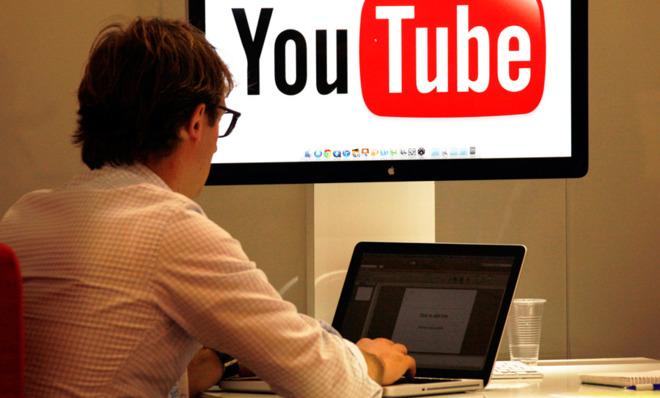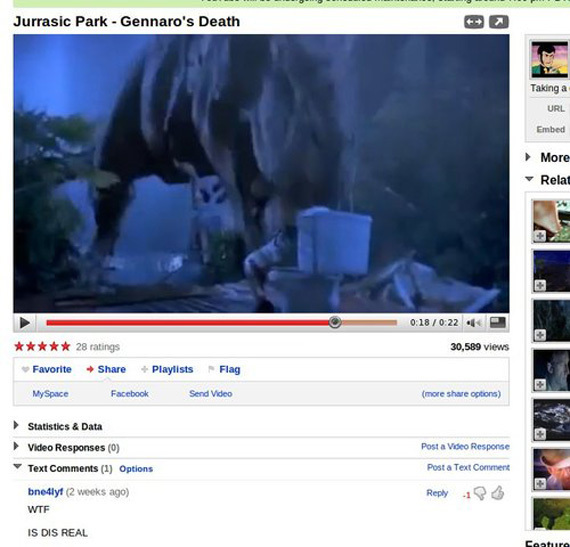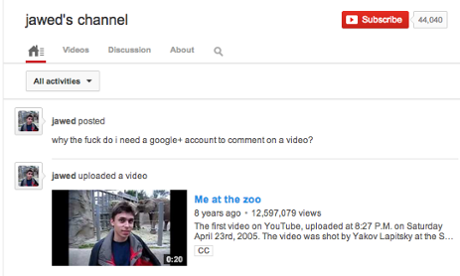The problem with YouTube's new commenting system
Requiring users to link their Google+ account won't stop trolling

A free daily email with the biggest news stories of the day – and the best features from TheWeek.com
You are now subscribed
Your newsletter sign-up was successful
A popular refrain on the internet is that comment sections are broken. They have always been a digital Wild West, where armchair cowboys with names like WeedDude69 indulge in mindless rants and name-calling portmanteaus (Obummer!).
Websites have started coming up with novel solutions to the problem. One controversial method is to ban the comments section altogether, which is what Popular Science recently did. Another solution employed by websites like The New York Times and NPR is aggressive moderation, which entails strict standards to raise the overall comment quality. While this is frequently held up as an ideal for publishers, the unfortunate reality is that moderating is a full-time responsibility that requires manpower that many smaller sites simply can't swing.
Which brings us to the web's premiere forum for smart and articulate people to write one another smart and articulate things: YouTube.
The Week
Escape your echo chamber. Get the facts behind the news, plus analysis from multiple perspectives.

Sign up for The Week's Free Newsletters
From our morning news briefing to a weekly Good News Newsletter, get the best of The Week delivered directly to your inbox.
From our morning news briefing to a weekly Good News Newsletter, get the best of The Week delivered directly to your inbox.
It's far and away the world's worst comment system — everything wrong with what passes for socializing on the web. BuzzFeed's John Herrman once wrote that YouTube is "a comment disaster on an unprecedented scale," and that "all of the worse things that could be said have been said here."

Best YouTube comment ever?
The crux of the problem is that YouTube is simply too unwieldy for anyone to effectively police. Statistics from 2012 revealed that of the site's 800 million monthly visitors, 100 million of them "take a social action on YouTube" — likes, shares, comments, etc. — every week. Many of these comments express horrible things unbecoming of the human race. And if they're not horrible, they're usually pointless noise.
In an effort to raise the bar for YouTube comments, Google recently mandated that users will have to switch over to their Google+ accounts if they wish to leave a comment. This, of course, requires you to link your Google+ profile page to your YouTube account, which, of course, requires you to use your "real" identity tied to other Google services. (You may have noticed Google aggressively asking you to link a Google+ page whenever you try to watch a YouTube video.)
A free daily email with the biggest news stories of the day – and the best features from TheWeek.com
Many users aren't happy with the change. The site's all-important content creators say it will lead to a drop in engagement. And, perhaps most indicatively, YouTube co-founder Jawed Karim isn't happy either. In only his second YouTube comment ever, he wrote:

Which brings us to the main problem with requiring users to use their "real identities" online: If the goal is to encourage better behavior or generate smarter dialogue, it doesn't work.
In theory it makes sense: Something like a Facebook profile should encourage better behavior through accountability.
Only that hasn't been the case. Earlier this year, for example, the Silicon Valley blog TechCrunch reverted back to anonymous comments after giving Facebook's comment system a try. Politico did the same thing when the volume of comments — and thus pageviews — dropped precipitously without any notable improvement in the quality of its discourse.
But don't take my word for it. Explore a few BuzzFeed comments, or take a look at the Facebook posts of your favorite publication. When behind a screen, people will write nasty things they would otherwise never say to another person face to face — real name or not.
Now, there are various other motivations for Google to dangle the Google+ carrot. For example: Similar to a Facebook like, +1s gives Google a very useful metric with which to track user activity.
But as Karim's own comment above makes clear, many people have no problem owning up to the sparkling prose of their thoughts, however rash those opinions may be. As long as humans have fingers, dumb/impetuous/regressive garbage will still grace your screen.
Is there a better solution? Perhaps not. I wish I had one. But requiring "real names" certainly isn't it. It has no discernible impact, while simultaneously turning away the people who use the service most passionately.
Perhaps the best illustration of the false correlation between real identities and better discourse, though, are the comments underneath YouTube's own video announcement, which is currently a haven for spam, online petitions, and ASCII renditions of middle fingers and penises.

Trolls are gonna troll, masks or not.
-
 ‘Restaurateurs have become millionaires’
‘Restaurateurs have become millionaires’Instant Opinion Opinion, comment and editorials of the day
-
 Earth is rapidly approaching a ‘hothouse’ trajectory of warming
Earth is rapidly approaching a ‘hothouse’ trajectory of warmingThe explainer It may become impossible to fix
-
 Health insurance: Premiums soar as ACA subsidies end
Health insurance: Premiums soar as ACA subsidies endFeature 1.4 million people have dropped coverage